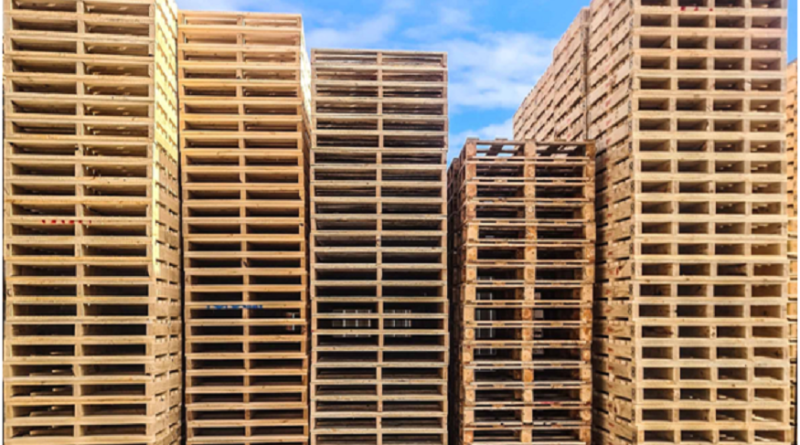Factors to Consider When Choosing the Perfect Pallets for Your Business
Not many things are as vital as that humble pallet when it comes to running a smooth and efficient supply chain. Often, the unsung heroes on which logistics systems were built, such as pallets, influence everything from how goods are stored and shipped to the operational bottom line. Finding the right pallets for your business is about far more than function. It’s a strategic decision with the potential to save time, cut waste, and boost productivity.
Be it manufacturing, retail, or even logistics, a little understanding of pallet selection could really make the difference. In this article, learn key factors one should look at and make a decent decision to keep in sync with business goals.
1. Understand Your Business Needs
Industry-Specific Tailoring of Pallet Choices
Certain industries have unique needs when it comes to choosing pallets. For instance, the food and drug sectors need pallets that are super hygienic. In contrast, heavy machinery companies need ones that are tough and durable.
It’s a good idea to figure out what your industry really requires to steer clear of any expensive mistakes.
Load Capacity and Dimensions
Pallet selection should be based on weight capacity and size. Exceeding the weight allowance causes breakage, delays operation, and leads to serious accidents. The nature of the products to be handled, their weight, and the level up to which pallets must be stacked must also be considered.
Storage and Handling Conditions
Your environment significantly decides the type of pallet material that is best for you.
For instance, using regular wooden pallets in humid or wet conditions isn’t the best idea. They can soak up moisture and end up getting weaker over time. Think about where and how you’ll be using your pallets to figure out the best option for you.
2.Material Matters: Choosing the Right Pallet
Wooden Pallets
Wooden pallets are low in cost and versatile. However, there can be possible splintering, pests, and warping in humid conditions. They work well for regular use, but they aren’t clean enough for industries that need top-notch hygiene.
Plastic Pallets
Plastic pallets are lightweight, durable, and waterproof. Their smooth surfaces make them super easy to clean. This makes them an ideal choice for food and pharmaceutical industries.
Metal Pallets
For companies that deal with heavy items or tough environments, metal pallets are a great alternative. They might be pricier, but they’re strong and they’re built to last a long time..
Composite and Recyclable Options
Eco-conscious businesses can try composite pallets made from recycled material. They combine strength and sustainability, meeting modern corporate ecological goals.
3. Consider Cost and Durability
Cost vs. Long-term Return on Investment
Yes, cheap pallets are tempting, but the number of times one has to replace them reduces their useful life, and the costs start to pile up. Good quality and sturdy pallets do cost more upfront, but they tend to pay themselves over time due to fewer breakages and less consequential downtime.
Operations Maintenance and Repairs
Reusability will be an important consideration. Find pallets that are easy to repair or recycle, extending their usability life cycle and lowering your operating costs.
Considering the Life Cycle
Just because a certain material is cheaper to buy upfront doesn’t automatically make it the best value. Figure out how long the pallets will hold up in your situation. While tougher materials might cost more at first, they could end up lasting way longer than the cheaper options.
4. Compliance and Safety Standards
Meeting Regulatory Standards
Some industries have specific rules about the pallets they use, especially when it comes to shipping internationally. For instance, wooden pallets must be export certified to meet ISPM-15 standards. Heat treatment preventspests from spreading from contaminated timber.
Prioritising Safety
Pallets need to meet load-bearing standards to ensure workplace safety. Choose options tested and certified for their strength and structural integrity.
Maintaining Hygiene
Using hygienic pallets becomes non-negotiable in certain industries, such as food, beverage, and pharmaceutical. Plastic pallets or wooden pallets made from treated material should effectively help you respond to industry hygiene requirements.
5. Sustainability and Environmental Impact
Go for Eco-Friendly Choices
Businesses are also under increasing pressure to minimise environmental damage. Recyclable pallets fashioned from sustainable materials enable you to work with environment-friendly options while ensuring quality standards.
Carbon Footprint Reduction
Lightweight pallets, such as plastic ones, would contribute to economising on the fuel consumption of transport vehicles. Reusable pallets reduce their replacement frequency, thus minimising waste disposal.
Contributing to the Circular Economy
Recyclable or reusable pallets mean your business contributes to the circular economy model by reducing landfill waste and promoting sustainability in business operations.
6. Supplier Considerations
Working with Reliable Vendors
A trusted supplier will ensure the right quality and timely supply of the pallets. Find a supplier with a good reputation and positive customer reviews.
Customisation Options
Not every business has similar needs, so a one-size-fits-all approach might not fit perfectly. Look for suppliers offering customised pallet solutions that can fit your particular needs.
After-Sales Support
Reliable after-sales support, including repair and replacement services, can help you avoid unnecessary headaches. Spend some time researching your supplier and ensuring they stand behind their products and provide continuing support.
Make an Informed Choice
The selection of pallets is not purely a logistical decision but more of a strategic one that affects operational efficiency, cost, and even sustainability. First, understand your needs, then the materials; balance costs to ensure that the choice of pallets meets some standards to support operations in achieving business objectives.
Ready to optimise your supply chain? Understand the key factors in finding the perfect pallets for your business today. Let your operations be based on a strong, sustainable foundation that guarantees success!

